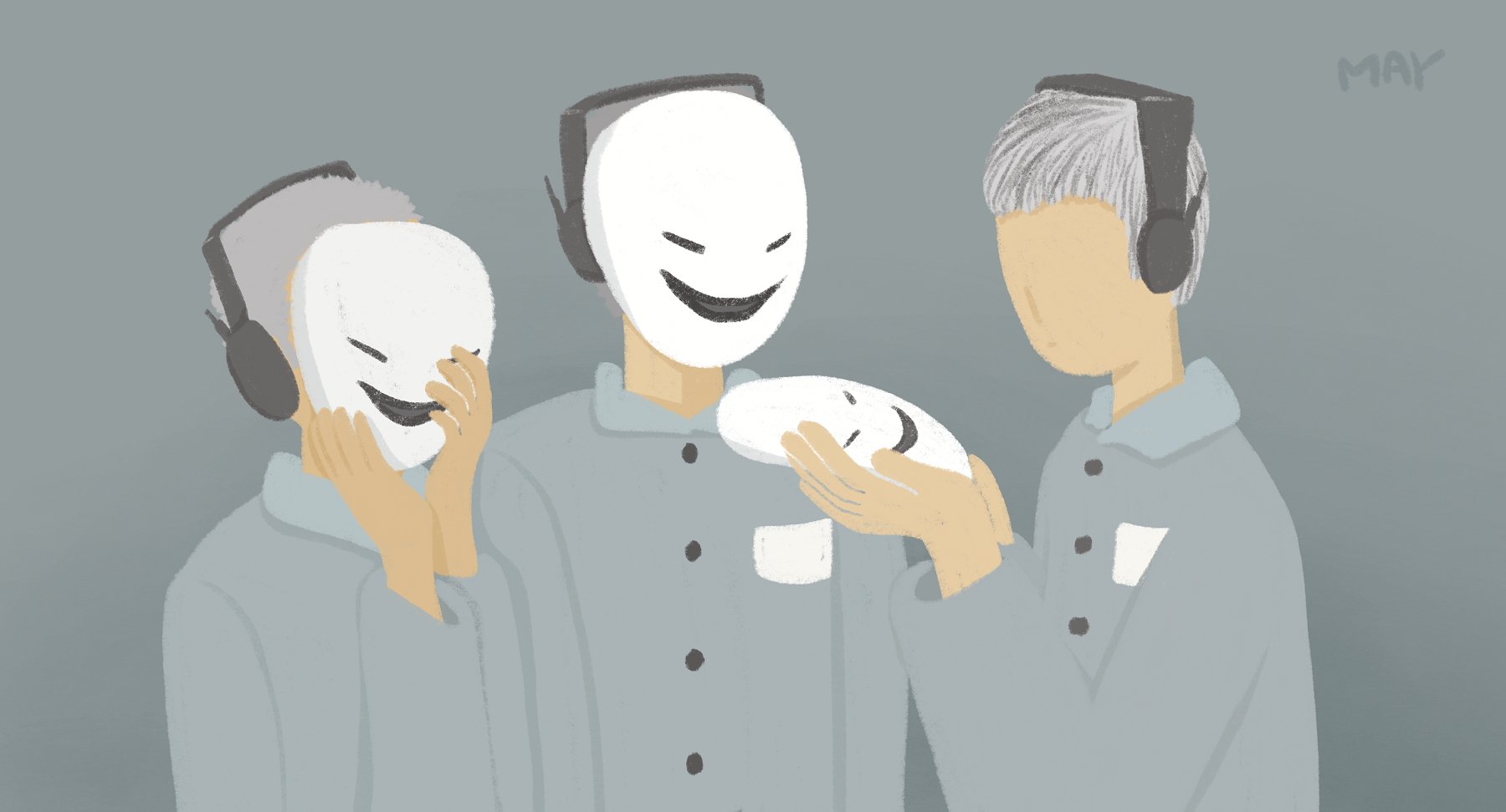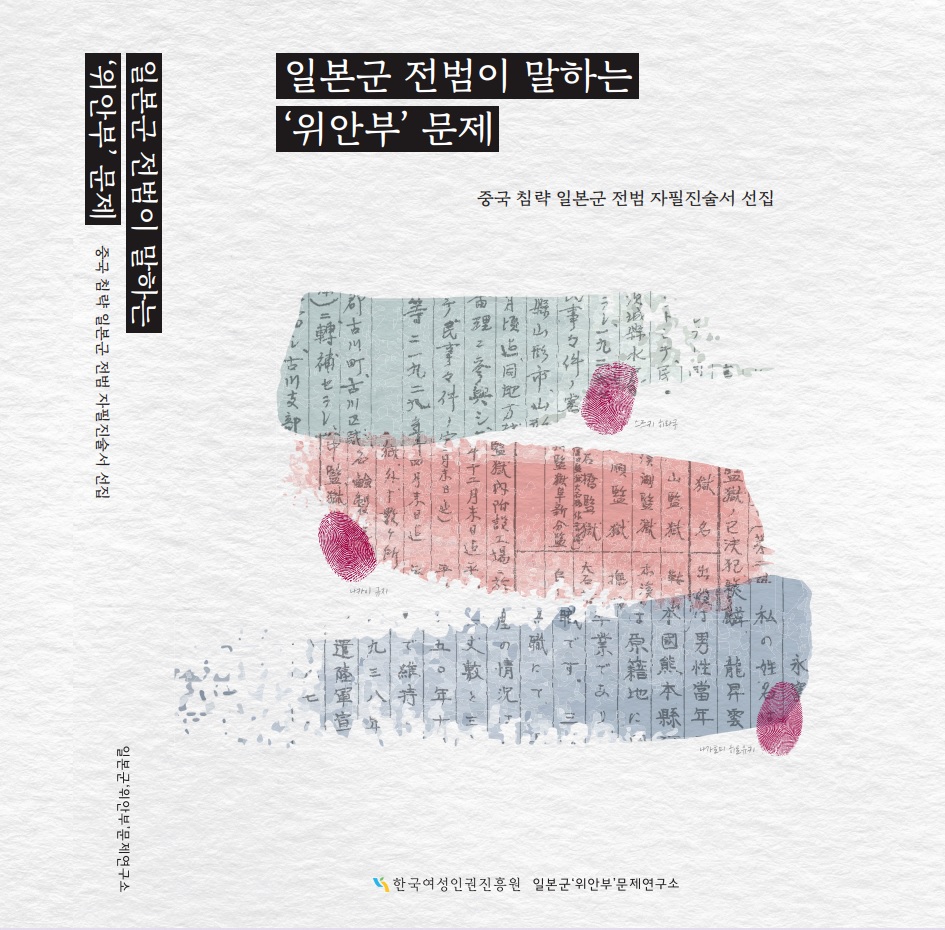Encounter with Chinese Victims of the Japanese Military “Comfort Women”
My first encounter with Chinese victims of the Japanese military “Comfort Women,” a topic that often sparks heated debate in China, was through a novel titled “When I Was in Xia Village” written by a Chinese author named Ding Ling and published in 1941. At the time, the novel was considered esoteric even for Chinese literary researchers. The story unfolds in a way where “I,” who come to the village for recuperation, observe the villagers and the protagonist, “Zhen Zhen,” who was a “Comfort Woman” for the Japanese military and later a spy for the Chinese Communist Party. After falling ill, Zhen Zhen returns to her village. The victimized woman, Zhen Zhen, is portrayed as a figure that no one can fully understand, including “me.” Although “I” do not understand her pain, I sympathize with her. At times, some individuals seek to appropriate the victims’ suffering, as if they could represent them, even though it is impossible in the first place. Even six decades after the novel’s publication, it is still difficult to say that the issue is being discussed through the lens of the victims. Given the circumstances, it is perhaps understandable that comprehending Zhen Zhen was difficult at that time. We are only capable of contemplating the Japanese military “Comfort Women” issue from the position of the victims.
After more than fifty years since Ding Ling portrayed Zhen Zhen, actual figures in China like her began to share their stories. One of the most heart-wrenching accounts is that of Hou Dong-E, a woman who was given to the Japanese military by the village chief. Other victims testify that even in the midst of violence, she sacrificed herself to protect those weaker than herself. However, she was forced to endure secondary and tertiary victimization after the war ended simply because she was a victim of violence perpetrated by the Japanese military. It could be argued whether Hou Dong-E’s suffering corresponds to that of a “Comfort Woman.” However, it begs the question of whether such a distinction holds any significance when viewed in the context of the continuum of violence against women, which is pervasive on the battlefield. Along with troops, the Japanese military brought “Comfort Women” from Korea and Japan to China, which became a battlefield, and raped women, continuing to commit violence against Chinese women in rape centers (“comfort stations”). While there is a substantial gap between rape, rape centers, and comfort stations, they can be seen as being on a continuum in that the Japanese military regarded violence against women’s bodies as a “reward for battle.” Therefore, this is an issue that needs to be addressed collectively.
Japanese Military War Criminals, Ultimate Perpetrators of the Chain of Violence
As we read the harrowing accounts of violence described in the oral data of the victims, the sheer horror of the atrocities leads us to contemplate the perpetrator, the Japanese military. Who were they? How did they end up on the battlefield, and what were they thinking? How was it possible for them to commit such unspeakable acts of cruelty? James Dawes, who interviewed convicted war criminals from the Sino-Japanese War and authored “Evil Men” (translated by Byeon Jin-gyeong, Maybooks, 2020), states that “evil is something wicked and radically different, but also something ordinary and common to all of us,” and that we are “free and autonomous beings, but on the other hand, we are products of our environment.” This paradox may hold the key to understanding the violence perpetrated by the Japanese military in the war. When we view “evil as something nefarious and alien,” we can put it outside of us as something incomprehensible and heterogeneous. However, when something “common to all of us” encounters a specific “environment,” any male has the potential to become a war criminal like those in the Japanese army. Keeping this uncomfortable truth in mind, we need to grapple with the perpetrators, the Japanese military. Of course, it is not an easy task.
During Japan’s war of aggression against China, rape perpetrated by Japanese soldiers became a routine occurrence, beginning with the infamous “rape of Nanking.” After the end of World War II, the handwritten statements of 842 out of 1,190 prisoners incarcerated at the Fushun and Taiyuan War Criminals Management Centers in China were collected and published in 2015 and 2017, entitled “Selected Compilation of Handwritten Statements of the Japanese Military War Criminals Invading China from a Collection of Central Archives of China” (hereafter Selected Compilation). According to Eiko Tosaya, who analyzed the primary points of this Chinese-language document collection, 23 war criminals made statements related to the “comfort station,” while 591 individuals made statements regarding rape. Only 251 individuals did not mention rape. Out of the total 842 war criminals included in the Selected Compilation, 65 percent made rape-related statements. At this point we need to consider the context in which the violence against “Comfort Women” creates a more serious “issue” than the rapes committed or witnessed by the majority of Japanese soldiers.
Susan Brownmiller, the author of “Against Our Will: Men, Women and Rape” (translated by Park So-yeong, Maybooks, 2018), which explores the history of rape, argues that “rape stories served a purpose during times of war, but once the war was over, there was no longer a political need to believe women’s accounts or to view their specific tragedies as a significant or meaningful subject.” Rape has often been employed to demonize the enemy and generate an “emotional justification for going to war.” It is now widely recognized that it is not about rape against women per se. Attempting to address wartime rape solely from the perspective of female victims does not garner much attention and may even be risky to pursue. In Korean society, the Japanese military “Comfort Women” issue is a highly contentious topic, but it has taken a convoluted path to move forward with the critical mind that this is a “distinct tragedy that only women suffer.”
The Meaning of Thinking between “Rectification” and “Brainwashing”
The handwritten statements of war criminals, included in the “Selected Compilation,” were prepared as part of a “learning” and “self-criticism” campaign carried out on approximately over 1,000 war criminals who were detained in the War Criminals Management Center. These statements formed the foundation for the Chinese government to create a special court-martial and carry out war crimes trials in 1956. The trials resulted in the prosecution of 45 defendants in Shenyang, Liaoning Province, and Taiyuan. The rest of the war criminals were immediately released and allowed to return home. However, understanding the statements made during the campaign process poses another challenge. There are also conflicting evaluations regarding the statement-making process.
As the Cold War intensified after World War II, post-war processing was not properly carried out, allowing Japanese war criminals to brazenly survive and become significant figures in postwar Japanese society. An example that exemplifies this is Emperor Showa. Even today, Japan’s emperor system continues to be an essential part of Japanese society’s fabric. Not discussing World War II at its root is a prevalent trend in Japanese society, which is not surprising given the circumstances. The war criminals who were not indicted by the Chinese military tribunals returned home immediately, and even those who were prosecuted returned home in the mid- to late-1960s without completing their sentences. Upon their return, they organized the Association of Returnees from China (hereafter Chukiren) and made efforts by testifying about their own war crimes in order to prevent the recurrence of war. However, war crimes deniers and history revisionists have publicly accused them of being brainwashed in China.

The Chinese government refers to it as thought reform through learning. What sets “rectification” apart from “brainwashing”? According to witnesses of the Chukiren, their imprisonment in the War Criminals Management Center led them to “reflect” on their actions. This is noteworthy because it brings to mind Hannah Arendt’s concepts of the “banality of evil” and “thoughtlessness.” Reportedly, while in the center, the war criminals read books such as Vladimir Lenin’s “Imperialism: The Highest Stage of Capitalism,” Mao Zedong’s “On Contradiction” and “On Practice,” and Eitaro Noro’s “History of the Development of Japanese Capitalism.” Illiterate war criminals were taught to read and write by fellow inmates, and those who found certain texts challenging received assistance by university-educated colleagues. Tetsuro Takahashi, a Chukiren member, said, “For the first time, we were able to live a humane life as war criminals” and “reading such books enabled me to think about how to see the world for the first time.” Also, Isao Inaba, who served as a standing director of Chukiren and actively gave testimony after returning to Japan, said, “As I thought about why the war happened and what I did... I learned more about who killed those people and for what purpose, and I began to realize what kind of person I was. I was a real devil.” These accounts suggest that the essence of being human is the ability to learn and think.
Hannah Arendt, in her book “Eichmann in Jerusalem” (translated by Kim Seon-uk, Hangilsa, 2006) argues that Eichmann had “no motives at all except for an extraordinary diligence in looking out for his personal advancement... He merely, to put the matter colloquially, never realized what he was doing...” Likewise, Japanese war criminals were driven by a strong desire to gain recognition for their contributions to the war, which led them to commit increasingly brutal acts. For example, Yutaka Takeuchi, who served as an army surgeon, planned and established “comfort stations” in every location he was assigned to prevent the loss of troops caused by sexually transmitted diseases. He remained faithful to his role as an army surgeon, and only after he was incarcerated in the War Criminals Management Center did he begin to reflect on the consequences of his actions. Kuji Nakai was born in 1897, graduated from Meiji University Law School, and served as a judge in civil and criminal cases at courts including the Tokyo District Court and later at the Jinzhou Local Court in Manchukuo. As a judicial official in Manchukuo, his charge was to carry out his duties as a judge, not “war crimes” such as murder, looting, massacre, or rape. He thought he simply carried out the judicial work that “everyone took for granted” as a judge. Wouldn’t he have felt proud that his actions contributed to the war and colonial rule (puppet state)? In his handwritten statement, Nakai admitted that his actions as a judicial official in Manchukuo constituted criminal acts. However, the question still remains as to whether he truly believed deep down that his actions were crimes.
As social beings, humans are inherently interdependent and our actions can have varying degrees of impact on others. However, how far can we expand our thinking about the potential ripple effects of our actions in the moment of action? Can considering the impact of our actions at the moment when we choose them serve as a brake to prevent a situation from worsening? Confucius once said that failure to learn and think critically can lead to delusion and danger. However, can’t we minimize the misfortunes of our world by cultivating the power to think without necessarily recalling Confucius' statement? The aspect of China’s thought reform as a “powerful psychological coercive system” cannot be overlooked. This system exerted immense pressure on individuals, to the extent that some offenders even committed suicide. Nevertheless, it is worth examining the positive implications of this movement that prompted individuals to acknowledge that their actions were a “crime” against someone else and reflect on their actions in a more extended relationship.

In December 2022, the RIMSS published “The ‘Comfort Women’ Issue Told by Japanese Military War Criminals: Handwritten Statements of the Japanese Military War Criminals Invading China” (Sechang), edited by Lee Sun-yi.
- Writer Lee Sun-I
-
Lee Sun-I (Research Professor of The Humanities Studies at Kyunghee University)
sunyi36@hanmail.net